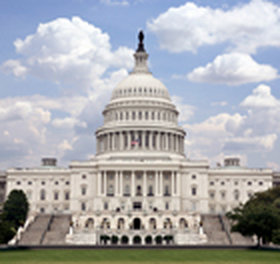
Editor’s Note: The House passed the budget Oct. 28. The Senate passed it Oct. 30. President Obama signed it Nov. 2.
The tentative budget deal that congressional leaders and President Barack Obama reached Oct. 26 contains good news for some and bad news for others, according to senior living industry officials. Among the winners, they say, are providers of seniors housing and long-term services and supports. Among the losers are some Medicare providers.
Under the terms of the Bipartisan Budget Act of 2015, pharmaceutical companies and hospitals would help ensure that Medicare beneficiaries are protected from a significant increase in Part B premiums in 2016—the former via an increase in the rebates they pay to state and federal governments to cover the cost of Medicaid, and the latter via a change in the way they are reimbursed for care provided to Medicare beneficiaries at physicians’ offices they own. With these changes, the roughly 30% of Medicare beneficiaries whose Part B premiums go up would see an increase of $16 per month instead of the $55 increase they could have experienced otherwise.
“Assisted living providers consistently partner with Medicare providers, so the news of an extension of the sequester cuts is disappointing,” National Center for Assisted Living Executive Director Scott Tittle told McKnight’s Senior Living. “However, we understand that compromise is never perfect and recognize Speaker Boehner’s efforts in crafting a deal that could offer fiscal certainty for the next two years.”
That fiscal certainty would come in the form of an extension of the debt ceiling until March 2017.
The House of Representatives is expected to vote on the act Wednesday. The president already has indicated his approval of the legislation.
LeadingAge officials said they are pleased that the government’s desire to prevent a large spike in Medicare premiums would have minimal impact on providers of LTSS. “We are very pleased by the bipartisan agreement to lift the onerous spending caps that would have meant severe under-funding for senior housing and supportive services programs,” they added.
The bill, if passed by the House and Senate and signed by the president, would increase federal spending by about $80 billion (1%) over the next two years as well as make cuts to some programs. A section-by-section summary of the act has been posted online.
Other highlights:
-
Social Security. The legislation would make changes to the Social Security Disability Insurance program, temporarily increasing the contribution from 1.8% to to 2.37% of wages. Additional proposed changes have the goals of stopping fraud and abuse in the program as well as encouraging beneficiaries who are able to work to do so.
-
Pensions. The bill also aims to help solidify the Pension Benefit Guaranty Corp. while generating savings. Premiums used to guarantee single-employer pensions would be increased to $68 for 2017, $73 for 2018 and $78 for 2019, and then they would be re-indexed for inflation. The variable rate premium would continue to be indexed for inflation but would be increased by an additional $2 in 2017, an additional $3 in 2018 and an additional $3 in 2019.



